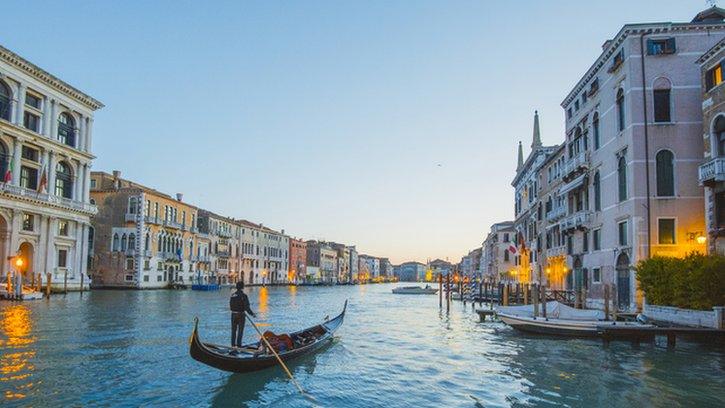Mount Fuji brings in tourist fees to limit numbers and bad behaviour
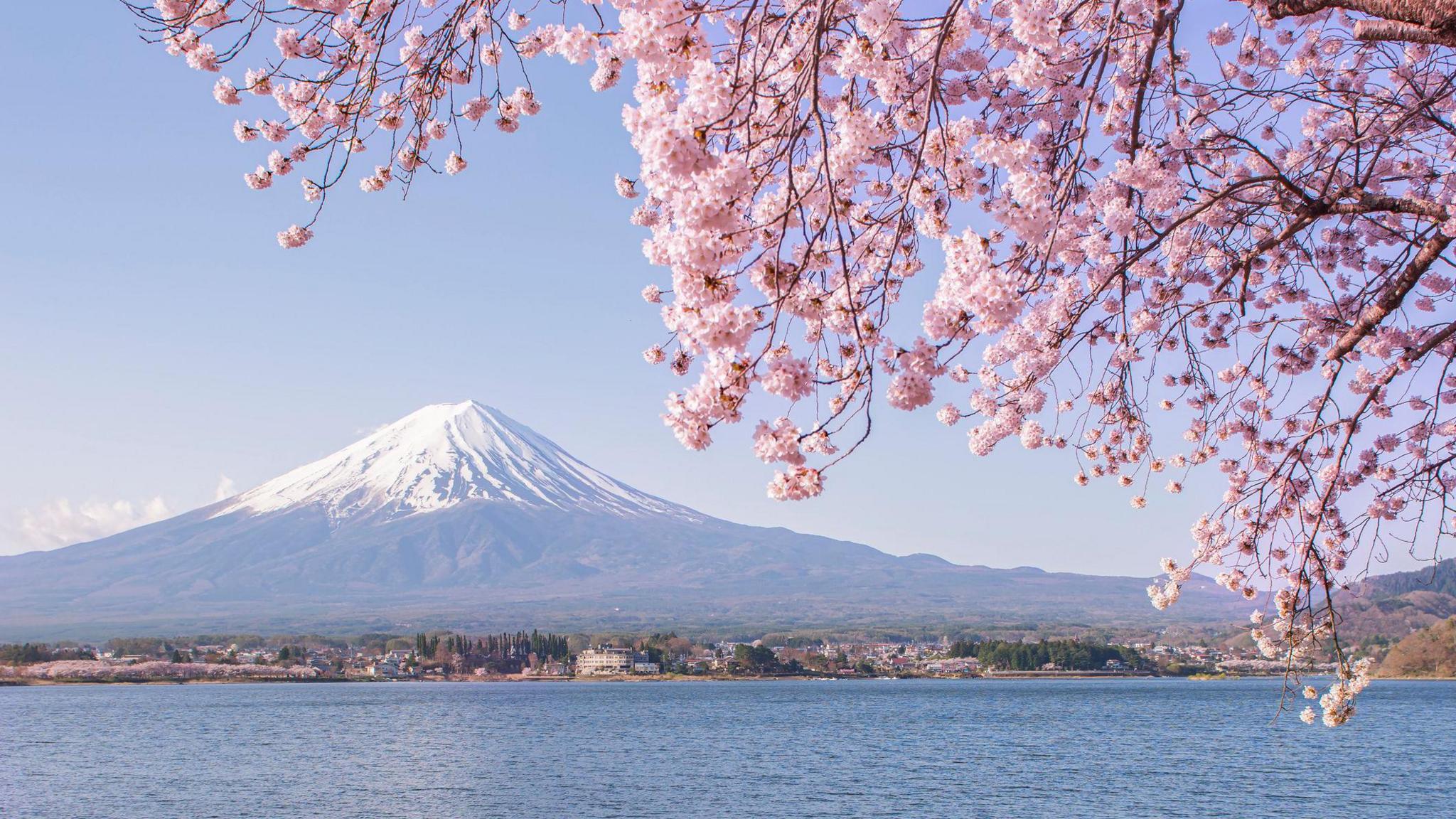
Mount Fuji is a popular tourist destination in Japan
- Published
Tourists hoping to climb Mount Fuji using its most popular route will now have to pay a 2,000 yen (£10) charge, to try and limit numbers.
More than 220,000 hikers used this trail between July and September last year.
According to authorities - it led to the paths being too busy, causing a rise in litter, but also instances where people got hurt on the trails.
Officials hope this new charge - as well as restrictions on hiker numbers - will help tackle these problems.
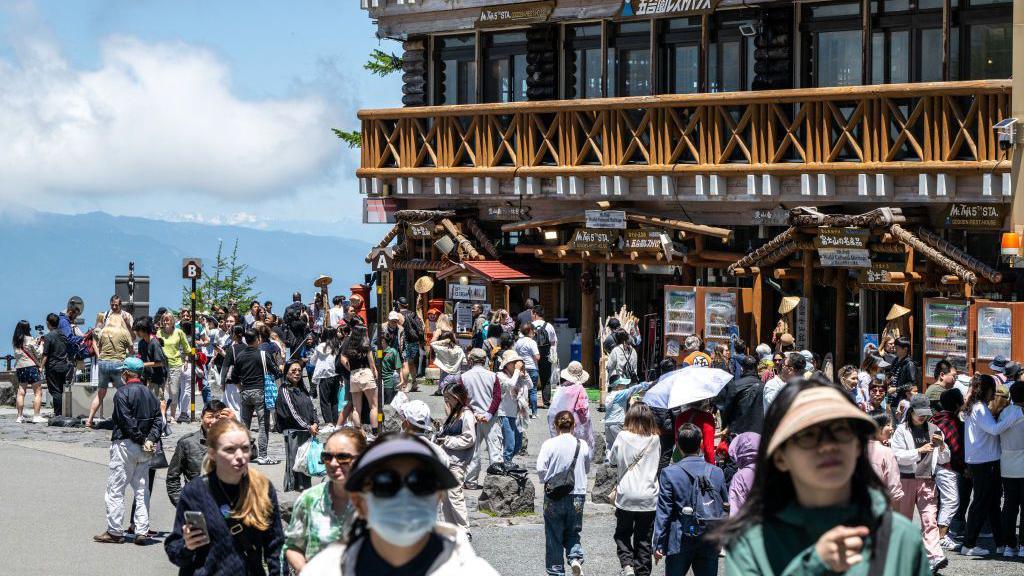
4,000 people a day will be allowed up the Yoshida Trail, to limit numbers and damage to Japan's famous volcano
No pictures, please: New barrier blocks a Mt Fuji photo spot
- Published21 May 2024
Camera-sized holes appear in Mount Fuji barrier
- Published31 May 2024
Is there a problem with too many tourists?
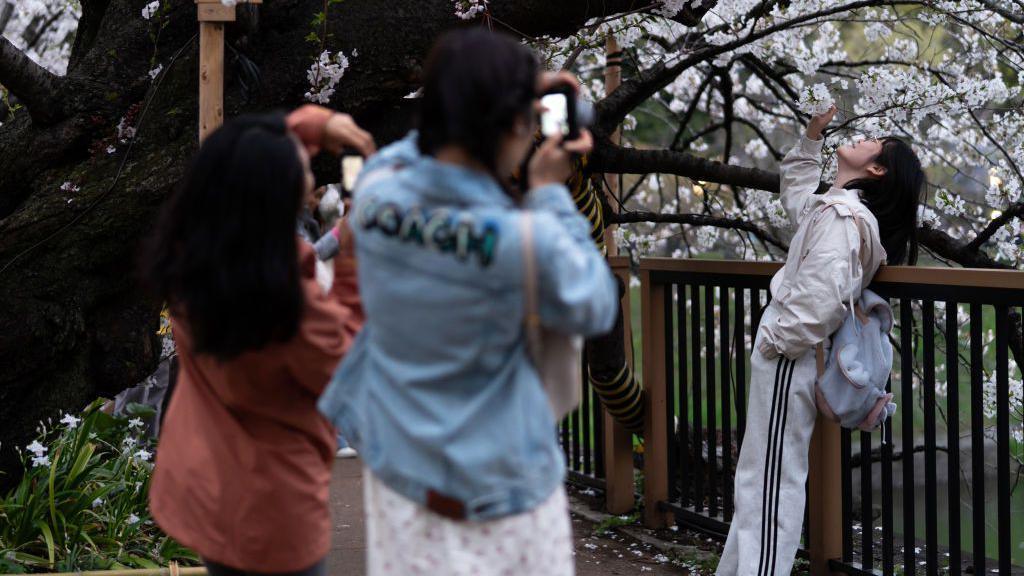
Famous cherry blossom in Japan attracts lots of tourists
There have been other problems with overcrowding in tourist spots in Japan.
Barriers were put up to stop tourists taking photos of Mount Fuji, because too many people were there and leaving litter behind.
Away from Japan, South Korean authorities are asking hikers to stop bringing and disposing of instant noodles on their climbs.
They say the salt is affecting the streams and wildlife on Mount Halla - the country's highest mountain.
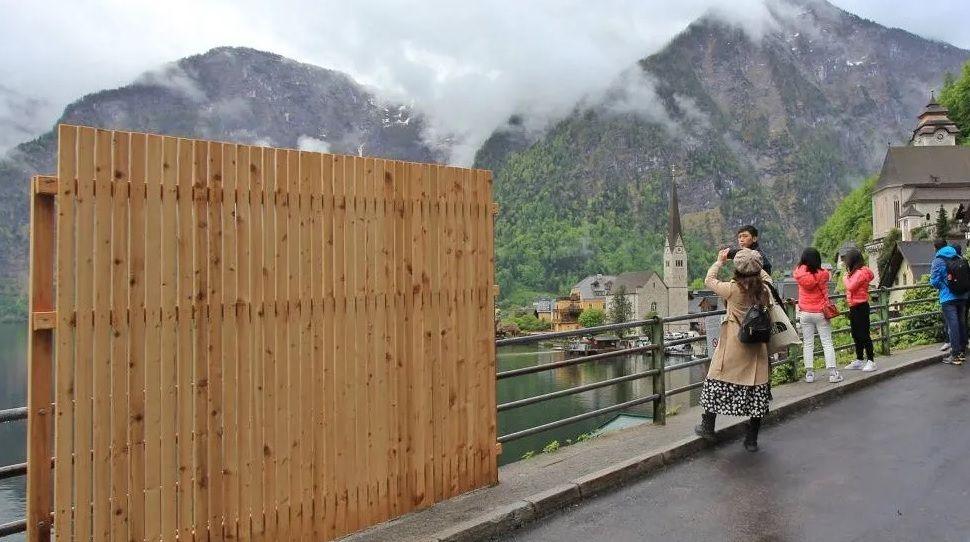
The wooden fence put up in an Austrian town
Elsewhere, people visiting Venice on day trips have had to pay a five euro tax since April with the charge in place until the middle of July.
People who live in the city, famous for its canals, have complained that tourism is making the historic site overcrowded, and that people often leave litter and mess.
And in Austria, a fence was placed at a popular tourist spot in the town of Hallstatt.
Known for it's stunning views, the fence was to placed in the hope it will reduce crowds and stop tourists from being able to take so many pictures.
Tell us what you think, is this the best way to reduce litter and overcrowding in places popular with tourists? Let us know in the comments.
- Published18 May 2023
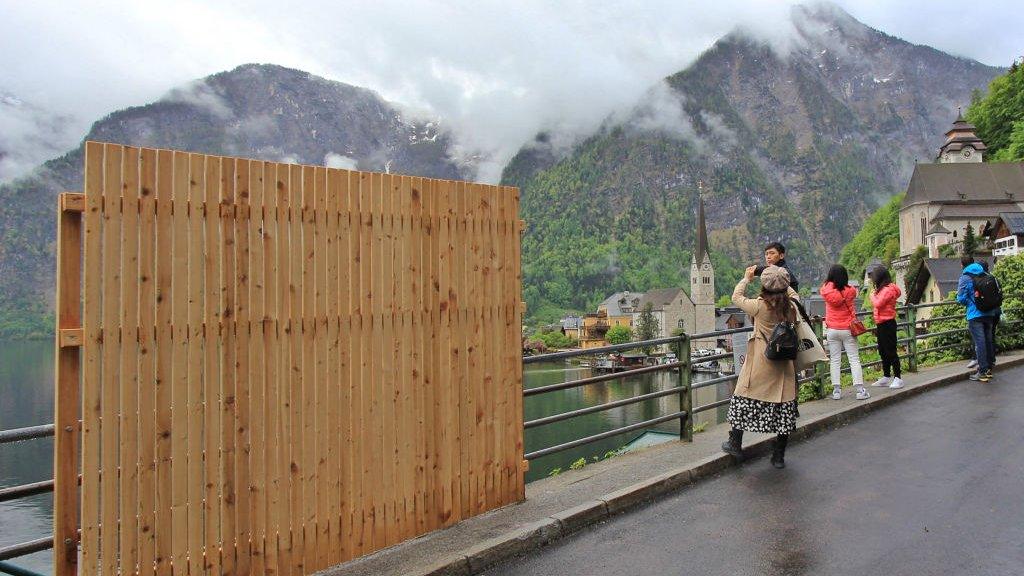
- Published26 April 2024
